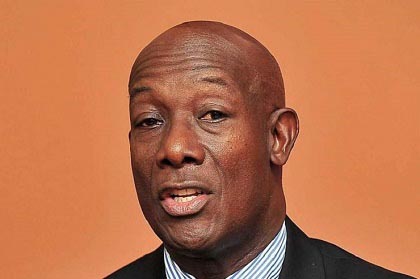CARICOM is “deeply concerned” and dissatisfied with the way that the Community has been squeezed out of access to COVID-19 vaccines.
“We know that there is a world shortage of vaccines but mechanisms put in place to allow countries like us to have access to vaccines have not been working…the end results is at the time we have only had one gift [from India] of 170,000 vaccines within our region,” Trinidadian Prime Minister Keith Rowley told the closing Press Conference yesterday of the virtual Thirty-Second Inter-Sessional Meeting of CARICOM Heads.
A communique released last evening added a specific call for equitable access to vaccines in order to curb the impact of the pandemic, to protect citizens and bolster the economy.
“As the virus does not discriminate, access to vaccines should not be discriminatory, with a few countries dominating the market with their resources and their volumes,” the document stressed adding that the eagerly anticipated doses from the WHO’s COVAX Facility will provide only as much as 20% of Members’ needs.
“This limited supply will not allow us to attain the regional herd immunity, so necessary to fuel the resilient recovery that we are seeking… therefore [CARICOM] calls for a mechanism that allows smaller countries to have access to sufficient vaccines at the earliest juncture if action is to be put behind the oft-repeated phrase that “no-one is safe until everyone is safe,” it concluded.
Rowley who currently chairs CARICOM further told the press conference that CARICOM efforts to secure vaccines through donations or purchase have been mostly unsuccessful with the only commitment coming from India which has agreed to supplement doses already supplied for some territories.
CARICOM commended Indian Prime Minister Narendra Modi for his generosity, which it is understood, will be continued. It also thanked Barbados and Dominica for having shared their initial supplies which were received from India. Guyana received 3,000 shots from Barbados out of the allotment donated by India
The community stressed that attention is also needed at the multilateral level and to this end, called on the World Health Organi-zation (WHO) to convene a Global Summit to address urgently equitable access to COVID-19 vaccines, particularly for developing countries, which should be held in the context of the World Health Organization’s ACT-A Facilitation Council.
This request was made on the same day that Director of the Pan American Health Organisation (PAHO) Carissa Etienne told South American leaders that PAHO shares their concerns for equity of access to vaccines particularly for middle and low income countries
“We continue to advocate strongly for the Latin America and Caribbean countries,” Etienne told the Forum for the Progress and Development of South America.
PROSUR
Guyana was represented at both the Forum and the Intersessional meeting and joined the call issued by PROSUR for strengthening and effective implementation of the COVAX (Collaboration for Global Equitable Access to COVID-19 Vaccines) mechanism, especially the Global Alliance for Vaccines and Immunization (Gavi) and the World Health Organization (WHO), with a view to achieving greater and faster access to the COVID-19 vaccine, including by supporting countries in negotiations with laboratories.”
Reminding that the Americas remains the epicenter of the pandemic the PAHO director stressed that making vaccines available to the regions should be a “top global priority” as no country is safe until all are safe.
She acknowledged the tremendous effort made by Latin American and Carib-bean countries in ensuring planning and readiness for the introduction of COVID-19 vaccines and explained that the supply arrangement between the Revolving Fund and the vaccines’ manufacturer, SK Bio, was finalized on Wednesday.
PAHO will, she said, progress “rapidly with price estimates and purchase orders.”
The organization is preparing to deliver the first COVID-19 vaccines procured for countries in the Americas through COVAX, the global mechanism working to ensure equitable access to the vaccines, as soon as they are available.
COVAX is expected to send letters this week to participating countries, confirming their allocation of vaccines and including the number of doses that countries will receive. This would be coupled with explanations of the allocation process, the legal and regulatory steps that countries should take, and upcoming key supply chain steps.
Meanwhile, other initiatives, such as procurement through the African Union’s African Medical Supplies Platform (AMSP), as well as bilateral arrangements, are being pursued by some Member States with the support of CARICOM.
The government of the Republic of South Africa and the African Union were commended for having carved out an allocation for CARICOM countries.
During the press conference Rowley indicated that every member state has committed to sharing as many vaccines as they can with those who are unable to procure.
Asked if CARICOM has approached Cuba for access to its vaccine once successfully developed, Rowley indicated that member states have also committed to accessing only those vaccines approved by the WHO.
“While we know that Cuba has a good reputation in the medical sphere and is developing a vaccine unless those vaccines get WHO approval all CARICOM countries have indicated that we will await such approval before we attempt to use it…but we do have contact with Cuba at different levels and we are pretty sure that we can access it but until that approval is had we do not see Cuba as a supplier of COVID-19 vaccines,” he explained.






